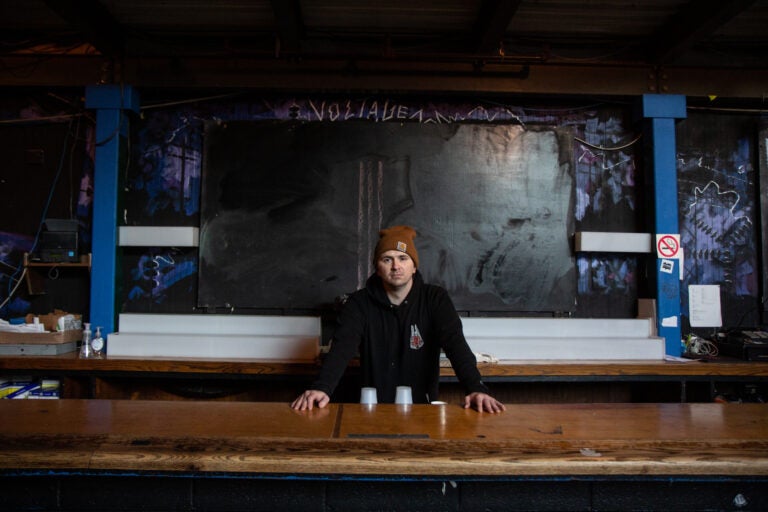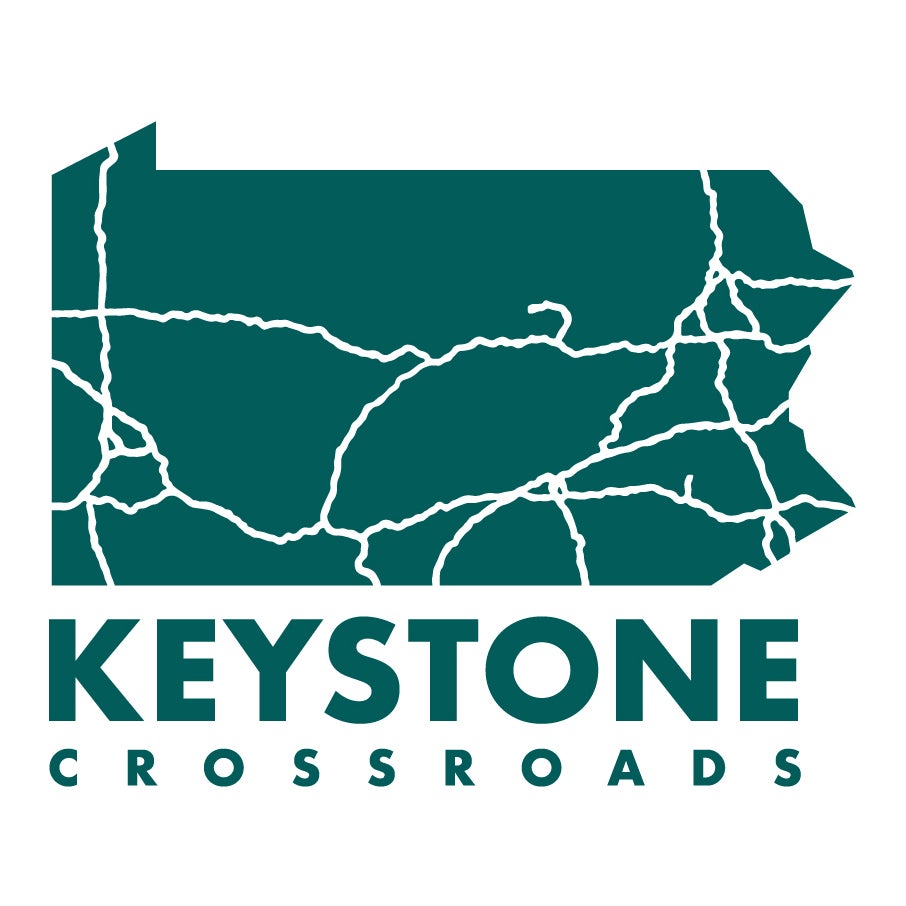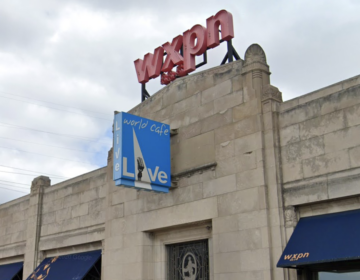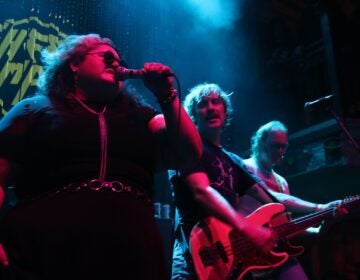New stimulus gives Philly’s struggling music scene its own shot in the arm
The stimulus earmarks $15 billion for independent venues. It’s a lifeline for roughly 225 businesses in Pa. — many of which have been in a coma since spring.

Sean Salm is the talent buyer and general manager of the Voltage Lounge in Philadelphia. (Kimberly Paynter/WHYY)
Ask us about COVID-19: What questions do you have about the current surge?
On Sunday night, Sean Salm could see the stage at Voltage Lounge lighting up again, with guitarists, singers and even professional wrestlers performing in front of a live audience after months of silence.
Not literally, of course.
But for the live venue manager, President Donald Trump’s decision to sign the $900 billion second coronavirus stimulus bill was enough to make him dare to dream. The Voltage, like most other hospitality businesses, has been devastated by the occupancy restrictions brought by the pandemic. The 350-capacity venue near Center City hasn’t been able to pay rent since March, Salm said.
“I think [Philadelphia’s] eviction ban has saved us, otherwise we would be out by now” said Salm, who is currently making ends’ meet by working a sales job at a New Jersey glitter company.
The latest stimulus bill earmarks $15 billion for the shuttered venues, museums, theaters, and other arts organizations. The money will be a lifeline for the roughly 225 independent venues in Pennsylvania — many of which have been in a coma since spring.
“We are [now] in communication with our landlord in hopes of working something out,” Salm said. “[This] has been huge in the process of saving our venue.
Grants designed with venue operators in mind
The funding for venues will be distributed directly by the federal Small Business Administration. To qualify, venues must have less than 500 employees, have opened before the pandemic, and have lost at least 25% of their revenue in 2020. Venue operators will be able to apply for initial grants of up to 45% of their 2019 revenue and will have broad discretion over how to spend that money.
That’s a major departure from the Paycheck Protection Program, which many venues turned to out of desperation in the spring. That program offered businesses loans that could be forgiven if they spent the majority of the money on payroll — something that was feasible for some bars and restaurants, but impossible for most venues, which either did not reopen at all or did so with far fewer employees.
Scooter Best, who owns The Grape Room in Manayunk, plans to make his pitch to the SBA. He said most of his revenue came from bar sales before the pandemic, but he’s struggled to replicate those sales without consistent indoor live acts. The Grape Room is in “terrible” financial shape, Best said, and he’s had to take a second job as a mason to keep his family afloat.
“It’s the Grape Room — you come for an experience,” Best said. “You can’t take that experience out.”
The details of the new pot of venue stimulus came out of a massive lobbying effort by independent venue operators, said Kerri Park, chief operating officer at the World Cafe Live and an organizer with the National Independent Venue Association.
“It has been quite a long road to get to this point,” Park said. “But all along the way we felt very much that once people heard our story, and understood how unique our situation was compared to other industries, they would really understand.”
Industry-wide, Park said the loss of employment has been “massive.”
The World Cafe went from about 100 employees to 10 on March 13. Those 90 employees were initially furloughed, Park said, but the cafe made the difficult decision to lay them off permanently in November. The remaining employees are receiving reduced salaries.
Parks celebrated when the stimulus bill passed with bipartisan support on Dec 21. But she spent the week in anxious suspense after Trump publicly declared he would not sign it without major changes. Only now, she said, is she relaxed enough for her ringtone — the 1988 Bobby McFerrin classic “Don’t Worry, Be Happy” — to not bother her.
“I think at this point everyone exhaled a little bit, and can finally see that breathing room on the horizon,” Park said.
When will the money flow?
The question now? Timing.
A spokesperson for the Small Business Administration (SBA) was not able to comment on when venue operators will be able to begin to apply for grant funding, or when those grants will start hitting bank accounts.
The National Independent Venue Association is working with the SBA on the grant’s application, Parks said. She expects the application portal to go live by late January, and disbursements to begin by late February.
The hardest-hit venues will get priority at first: The law limits the first two weeks of the application period to venues that lost at least 90% of their revenue during the pandemic. It also sets aside $2 billion for venues with 50 employees or less.
It still comes too late for the Boot and Saddle, the South Philly venue which closed permanently in November.
“We stretched it out as long as we could,” said Sean Agnew, whose R5 Productions company owned Boot and Saddle and operates Union Transfer. “If [the stimulus] happened a few weeks earlier it would probably still be up and running, which is a brutal thing.”
Still, better late than never, Agnew said. Even after selling off the Boot and Saddle’s liquor license, and sound system, and other assets, the future of Union Transfer was still in doubt.
“This almost guarantees that we can open when it is safe to do so,” he said.
For Karen Saillant, who has operated The Fire in Northern Liberties since 1999, the new funding would be a way out of a financial hole that has grown deeper with each passing month of the pandemic.
For decades, the Fire has been a launchpad for new acts. John Legend played some of his first shows there while he was a student at the University of Pennsylvania. Saillant, who is also the artistic director of Philadelphia’s International Opera Theater, gave singing lessons to G. Love frontman Garrett Dutton before he found fame.
But the venue has long struggled to make money. In 2018, Saillant sold her home of five decades to help keep it afloat.
“It was kind of unfortunate timing,” she said.
Sailliant is in her mid-70s, and so worried about contracting COVID-19 she has hardly been outside since March. Still, she said she will do whatever it takes to re-open The Fire when it is safe to do so.
“I can’t imagine not continuing to offer venues for young musicians to play,” she said. “It is always art that leads away. If we lose our artistic institutions….what do we have left?”

Get more Pennsylvania stories that matter
WHYY is your source for fact-based, in-depth journalism and information. As a nonprofit organization, we rely on financial support from readers like you. Please give today.




![CoronavirusPandemic_1024x512[1]](https://whyy.org/wp-content/uploads/2020/03/CoronavirusPandemic_1024x5121-300x150.jpg)



